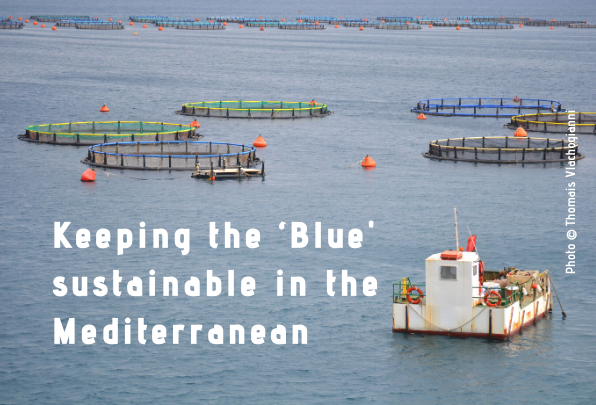 In a Union for the Mediterranean (UfM) online consultation that took place from 11-25 March 2020, MIO-ECSDE and 100 more entities, including research centers and universities, public administrations, the private sector, international organizations and non-governmental organizations, submitted their suggestions on addressing future joint challenges on key blue economy matters in the Mediterranean region.
In a Union for the Mediterranean (UfM) online consultation that took place from 11-25 March 2020, MIO-ECSDE and 100 more entities, including research centers and universities, public administrations, the private sector, international organizations and non-governmental organizations, submitted their suggestions on addressing future joint challenges on key blue economy matters in the Mediterranean region.
The consultation was structured around priority themes, ranging from maritime governance, sustainable food, tourism, maritime transport, adaptation to climate change, marine litter, blue skills development and employment. It maintained the same structure as the UfM regional stakeholder meeting on Blue Economy that was to take place in Barcelona on 10-11 March, before being cancelled due to COVID-19.
Among other inputs MIO-ECSDE contributed to the consultation was that “Appropriate Governance for the promotion of Blue economy as a vehicle towards Sustainable Development should be both efficient and transparent. This, to a large extent could be secured through systematic information and awareness of all relevant stakeholders and balanced and meaningful participatory processes. Provisions for the latter are within the Aarhus Convention, which could and should be adopted and implemented by all Mediterranean countries.”
The online consultation identified urgent technical assistance needs for the Mediterranean countries, including digitalisation, integration of circular economy and application of sustainable financing. The Mediterranean region is among the world’s leading tourist destinations, hosting more than 300 million tourists per year. Representing the top Blue Economy sector for income and job creation in the basin, tourism is also a driving force for young entrepreneurship and SME growth. More than ever, Mediterranean countries will need to position the Mediterranean as a truly ‘green’ touristic destination, considering key ways to enable sustainable growth for the sector.
Detailed inputs of MIO-ECSDE and other participants can be accessed here
Read directly from the UfM here
Read this in French here